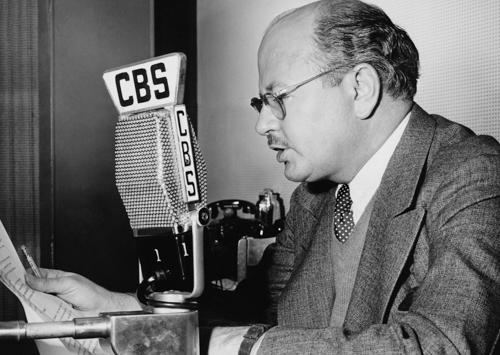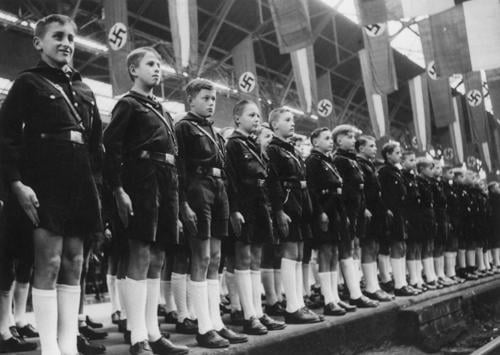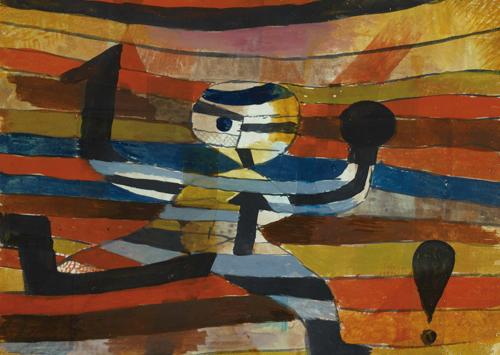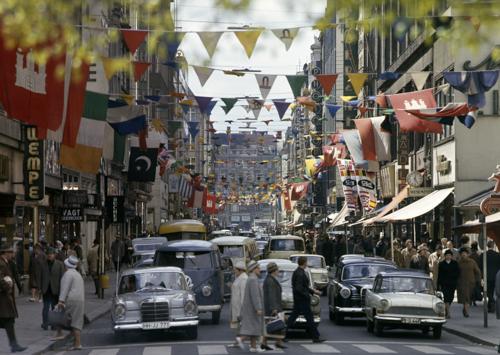Listen to New Voices on Studs Terkel our partnership with 826CHI-here! Read the Story
Showing 1 - 15 of 16 results
-
William L. Shirer discusses his book "The Collapse of the Third Republic"
1970 William L. Shirer discusses his book "The Collapse of the Third Republic". Shirer talks about the fall of the third republic of France. Shirer also discusses World War II Europe.
-
Werner Burkhardt German jazz critic and translator speaks with Studs in Hamburg, Germany.
Mar. 1, 1967 Werner Burkhardt, German music journalist, critic, and translator, discusses his life and work with Studs. Mr Burkhardt speaks about his life during the time of Adolph Hitler, the Hitler Youth, and World War II. They end the interview talking about Jazz in Munich, a recording of "My Man" by Billie Holiday closes the interview.
-
Thomas Keneally discusses the book "Schindler's List"
Nov. 12, 1982 Thomas Keneally discusses the book "Schindler's List," detailing the actions of Oskar Schindler saving Jews during WWII.
-
Studs Terkel talks with three World War Two veterans
Apr. 17, 1985 Interviewing Ed Ruff, Joe Polowski, and Leroy; three veterans of the meeting of U.S. and Soviet forces at the Elbe River on April 25, 1945. The result of this meeting was the splitting of Nazi Germany into two parts and the ensuring of victory in Europe.
-
Studs Terkel continues his interview with Erich Luth in Hamburg discussing the aftermath of the war on Germany's youth ; part 3
1967 There is a silence in the tape from 3:48 to 3:58 due to Studs changing the tape. It should be noted that the word "clever" in this discussion means intelligent. The interview concludes at 35:36 where Studs offers his reflections on his stay. Luth is the retired Press Chief of Hamburg and has also helped with remunerations for the Jewish people in the aftermath of World War II. He has also facilitated detente between Israel and West Germany.
-
Sir Georg Solti talks with Studs Terkel
Feb. 1, 1995 Studs engages the former Chicago Symphony Orchestra conductor, Sir Georg Solti, in a wide-ranging conversation about his life and career. From his early studies in Budapest with Béla Bartók, his string of good-luck opportunities before, during, and after World War II, meeting Toscanini in Lucerne, and starting on top conducting in Frankfurt, London, and finally Chicago. He discusses his many German and European musical influences and contemporaries, and stresses the importance of education, arts funding, and hard work.
-
Nicola Geiger discusses her background and her time spent in the far east
Oct. 21, 1974 Born in Hamburg, Nicola Geiger, recalls her upbringing and her life under Nazi Germany. She lost two children in World War II. Later in life, she worked in both Japan and Korea. Geiger knew that she alone could not change the world but that she worked tirelessly to get other people to work on peace, too.
-
Muriel Gardiner discusses her books "Code Name Mary" and "The Deadly Innocents"
Nov. 26, 1984 Muriel Gardiner's background and her time spent in Austria are the topics of "Code Name 'Mary': Memoirs of an American Woman in the Austrian Underground". With her book, "The Deadly Innocents: Portraits of Children Who Kill," Gardiner studies the lives of 10 kids who kill or attempt to kill.
-
Martin Broszat discusses Germany
1967 Interviewing historian Martin Broszat while visiting Munich, Germany at the Institute of Contemporary History(Institut für Zeitgeschichte). They discuss National Socialism(Nazism) in German & European History between World War I and World War II. As well as a brief discussion of the Neo-Nazi Movement in the 1960's in Germany.
-
Interview with Stephanie Barron
Jun. 1, 1991 Discussing the book "Degenerate Art: the Fate of the Avant-Garde in Nazi Germany," (published by H. N. Abrams) with the author and editor Stephanie Barron.
-
Hildegard Knef discusses her book, "The Gift Horse: Report on a Life" and the experiences of her life in Nazi Germany and as an actress in America post World War II
1971 Studs interview with Hildegard Knef, actress and writer. They discuss her life in Nazi Germany during the war and her experience as an actress when she came to America. Studs and Hildegard read together from her book, "The Gift Horse." Knef describes her family, Nazi Germany, survival, and her experience as a German in American post WWII. Her husband, David Anthony Palastanga, also reads an excerpt from her book.
-
Erich Lüth talks with Studs Terkel on life under Hitler and its aftermath ; part 2
1968 Studs continues his interview with Erich Luth in Hamburg, Germany. The audio breaks at 25:23 and continues on a Sat at 25:28 till its conclusion at 35:43. Erich Luth conveys stories of humanity by both German prisoners towards Russian prisoners whose treatment was dictated by the Nazi party to not offer any winter clothing or shoes to provide comfort. The German laborers provided a human solidarity that brought them food, clothes, and soap.
-
Discussing the book "Solidarity and Treason: Resistance and Exile, 1933-1940" with the author Lisa Fittko
Jan. 28, 1993 Lisa Fittko discusses her experience as an anti-fascist resistance fighter in Berlin, Germany during World War II. They also explore accounts from her book "Solidarity and Treason: Resistance and Exile, 1933-1940".






